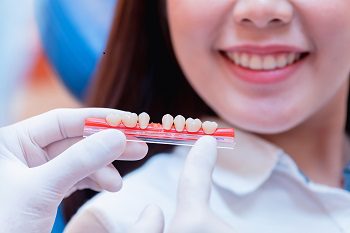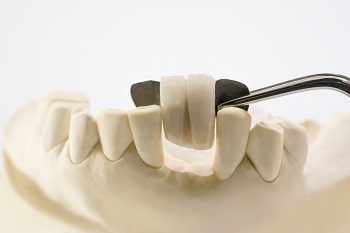What Are the Options for Tooth Replacement?
2023-02-01
A healthy set of teeth are essential for maintaining good oral health. Also, they help you chew properly and speak correctly. In contrast, a lack of single or multiple teeth can cause several problems, such as teeth shifting or an inappropriate smile. A recent report on health and nutrition reveals that almost 92% of adults suffer from some form of tooth decay. The number of those with missing teeth is even more significant. Recent statistics show that around 178 million people have at least one missing tooth in the United States alone. However, dental advancements offer several options for tooth replacement.
A missing tooth changes how you smile and can negatively impact teeth alignment. It must be replaced when you lose a tooth because of decay, an accident, or otherwise. A missing tooth can undermine the integrity of your jawbone. Therefore, you must visit your dentist for an appropriate replacement option. This article will enlighten you about different options for replacing missing teeth so that you can prepare in advance.
“Every tooth in a mouth is as valuable as a diamond. Be kind with your teeth and care for them properly”.
3 Options for Replacing a Missing Tooth
Today, multiple options exist for replacing a single missing tooth or multiple teeth. Even if you cannot afford much, there are cost-effective ways to replace missing teeth. Here we'll discuss each tooth replacement option's pros, cons, and eligibility criteria so you can choose wisely. Also, the right replacement option will depend on your dental health, and the dentist will inform you in advance. Let's get to know several options for replacing missing teeth.

- Partial Or Complete Dentures
A denture is a removable replacement option for missing teeth. It has two basic types, i.e., partial and complete. The former is utilized when some of the natural teeth remain. In contrast, the latter is used when all teeth are missing and need a tooth replacement.
When you have several missing teeth, dentures provide a cost-effective replacement. Nowadays, you can also avail of implant-supported dentures if you qualify as a candidate. They are similar to traditional dentures, except they are fitted using dental implants.
Besides improving the smile, dentures support speaking and chewing ability. They fill in the gaps created by missing teeth and prevent teeth from shifting. Dentures are well-suited to people who:
- Have several missing teeth, either in the lower or upper arch.
- Cannot avail of dental bridge because of inappropriate support.
- Need a budget-friendly option for replacing missing teeth.
- Do not qualify for dental implants because of the unhealthy jawbone.
- Require a fast treatment to secure their smile.
Pros:
- Dentures offer an excellent way to restore missing teeth from an aesthetic point of view.
- They almost work for everyone, even if the remaining teeth or jaw aren't in good shape.
- They are super easy to maintain and are cleaned quickly.
Cons:
- Dentures tend to wear down and might require frequent replacements.
- Sometimes, dentures can fall out in public, making you embarrassed.
- You have to go through several procedures before dentures can fit in.
- Dental Implants
Another missing tooth replacement option is dental implants. Dental implants are medical devices surgically placed in the patient's jawbone. The artificial tooth can, later on, be mounted on these implants and restore the missing tooth's function.
Dental implants are usually made of titanium; they provide a permanent solution to replace missing teeth. You can use dental implants with a missing tooth or multiple teeth. However, only some are suitable candidates for dental implants. The qualifying criteria for dental implants are discussed below.
- The patient must be in good health and not have serious health issues like diabetes or heart disease.
- The teeth and gums must be healthy with no signs of gum disease.
- The jawbone mass must be sufficient to hold the implants and provide a strong foundation.
If the patient's jawbone mass is insufficient, then a procedure known as "bone grafting" must be done before fixing implants. Unlike traditional dentures, dental implants are fixed and permanent tooth replacement options. They have excellent durability and aid the chewing and speaking function. The pros and cons of dental implants are discussed below.
Pros:
- Dental implants can last forever if they are cared for properly.
- They mimic natural teeth and are super comfortable.
- Dental implants prevent bone loss and keep adjacent teeth stable.
Cons:
- They are more expensive than other treatment options. So, everybody needs help to afford them.
- The process of implants requires a lot of patience. It takes around six months to complete the procedure.
- Dental implants are not well-suited to people who are fond of teeth grinding and clenching.
- Dental Bridge
A dental bridge is also a viable replacement option if you have missing teeth. A dental bridge refers to a false tooth held in place with the abutment teeth. The dental bridge "bridges" the gap between healthy teeth where one or more are missing. In other words, when you have missing teeth, the dentist closes the gaps in your smile with a dental bridge.
A dental bridge is typically made of porcelain and aesthetically blends with your natural teeth to preserve your smile. Dental bridges are of various types, such as traditional, cantilever, Maryland, and implant-supported bridges.

However, the most commonly used type comprises two crowns made of metal or porcelain. They lie on the sides and are permanently bonded to the natural teeth. The false tooth lies in the middle of these crowns and replaces the missing tooth. Dental bridges are most suited to people who:
- Have one or up to 4 consecutive missing teeth.
- Have healthy surrounding teeth to hold the bridge.
- Have sufficient jawbone density.
- Have good oral health and a mouth free of gum disease.
Pros:
- A dental bridge offers a fast way to restore a missing tooth.
- Dental bridges are more secure than dentures and do not require any surgery.
- They look natural and are more affordable than dental implants.
Cons:
- The lifespan of a dental bridge is shorter than implants.
- The bridge placement requires a little alternation for healthy teeth.
- A dental bridge does not address bone loss because it sits above the gum line.
What Happens If You Don't Replace Your Missing Teeth?
If you don't replace missing teeth, your jawbone will begin to deteriorate. Besides bone loss, it will also impact the way you look. You'll look older than before, which may cause additional tooth loss. Your whole mouth will suffer from missing teeth not being replaced. The three significant risks of not replacing missing teeth are enlisted below.
- A Greater Chance of Infection. The prospect of bacterial infections and gum disease increase after losing a tooth. An empty dental socket is accessible for bacteria and plaque to accumulate. Moreover, it can expose the roots and sides of the adjacent teeth; hence, bacteria can quickly attack them.
- Teeth Misalignment. Another problem with missing teeth is that they contribute to teeth misalignment. The adjacent teeth can shift on either side of the gap with one or more missing teeth. These teeth can drift inward, and hence crowding occurs in the mouth. It makes it difficult to clean and also promotes bacterial growth.
- Gum And Jawbone Deterioration. One or more missing teeth can undermine the health of the gums. It can also cause gum disease, i.e., gingivitis or periodontal disease, and affect the jawbone. The estimates show that the jawbone is affected at a rate of 25% in the first year of a missing tooth. After that, it deteriorates further and changes the facial shape.
Having said so, replacing missing teeth is highly important to stop bacterial growth and maintain the appearance of your face. It is highly recommended to replace your missing teeth as quickly as possible to prevent further problems.
Concluding Thoughts
If you lose a tooth, you must replace it on time. Otherwise, you can have further dental issues such as facial sagging, bone loss, gum disease, bacterial growth, etc. For instance, visit your dentist if you have lost a tooth after an extraction or injury. Consider the tooth replacement options discussed above to get the proper treatment on time. Do not let your oral health diminish because of a missing tooth.
Contact your dentist in Walnut Creek, Dr. Darvishzadeh at Walnut Creek Dental to learn more about the options for Tooth Replacement.
Resource:
What Are Your Options For Tooth Replacement?
*This media/content or any other on this website does not prescribe, recommend, or prevent any treatment or procedure. Therefore, we highly recommend that you get the advice of a qualified dentist or other medical practitioners regarding your specific dental condition*
Subscribe To Our Newsletter
Get Updates And Learn From The Best